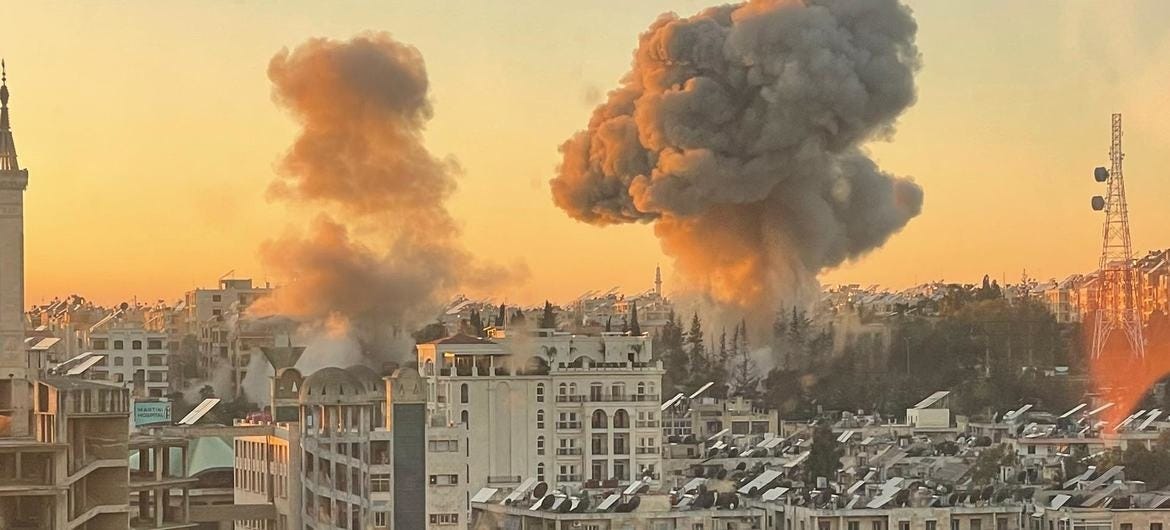The International Politics of Syria are at a Major Inflection Point
What the UN can do for Syria right now
Syria, and the entire region, is at a major turning point.
Before the war, Syria was a middle-income country that did not require much international assistance. But within months of the outbreak of conflict, Syria became the worst humanitarian crisis in the world—by far. It remained one of the most complex and expensive international humanitarian relief operations on the planet for over a decade. This year alone, the UN has requested over $4 billion from donors to support the basic life-saving needs of more than 20 million Syrians.
The hope and expectation now is that Syria may transition away from relying on massive amounts of international humanitarian aid. To be sure, people displaced by recent fighting and many of those returning home after years of living as refugees in Lebanon will still require support for some time. The country will also need significant development assistance to rebuild after more than a decade of war. But without active conflict, the economy can start to recover. If the new government seeks to establish its legitimacy by delivering services to the Syrian people, many of the basic humanitarian needs can be met domestically—which is how it should be.
Syria’s ability to rebuild and restore itself as a country capable of providing for the basic needs of its people will depend on the extent to which key international players—Russia, the United States, Turkey, and Iran—can coalesce around broadly defined goals for Syria’s future.
Before the fall of the regime—just last week—each of these foreign powers had distinct spheres of influence within Syria, which they exploited by arming disparate groups. But with Assad gone and alliances now fluid, there is a genuine opportunity to coalesce around a coherent vision for Syria’s political future.
Many of these conversations will happen at the Security Council, which is meeting today at Russia’s request. From a diplomatic standpoint, this is a remarkable turn of events. For the last 14 years, the Security Council was where international cooperation on Syria went to die. As the conflict escalated, Russia doubled down on its support for the Assad regime, rendering the Security Council a useless platform for achieving an international political consensus on Syria’s future.
But now, it is suddenly becoming relevant.
Decisions made—or not made—at the Security Council over the next few weeks will profoundly impact the political future of Syria.




